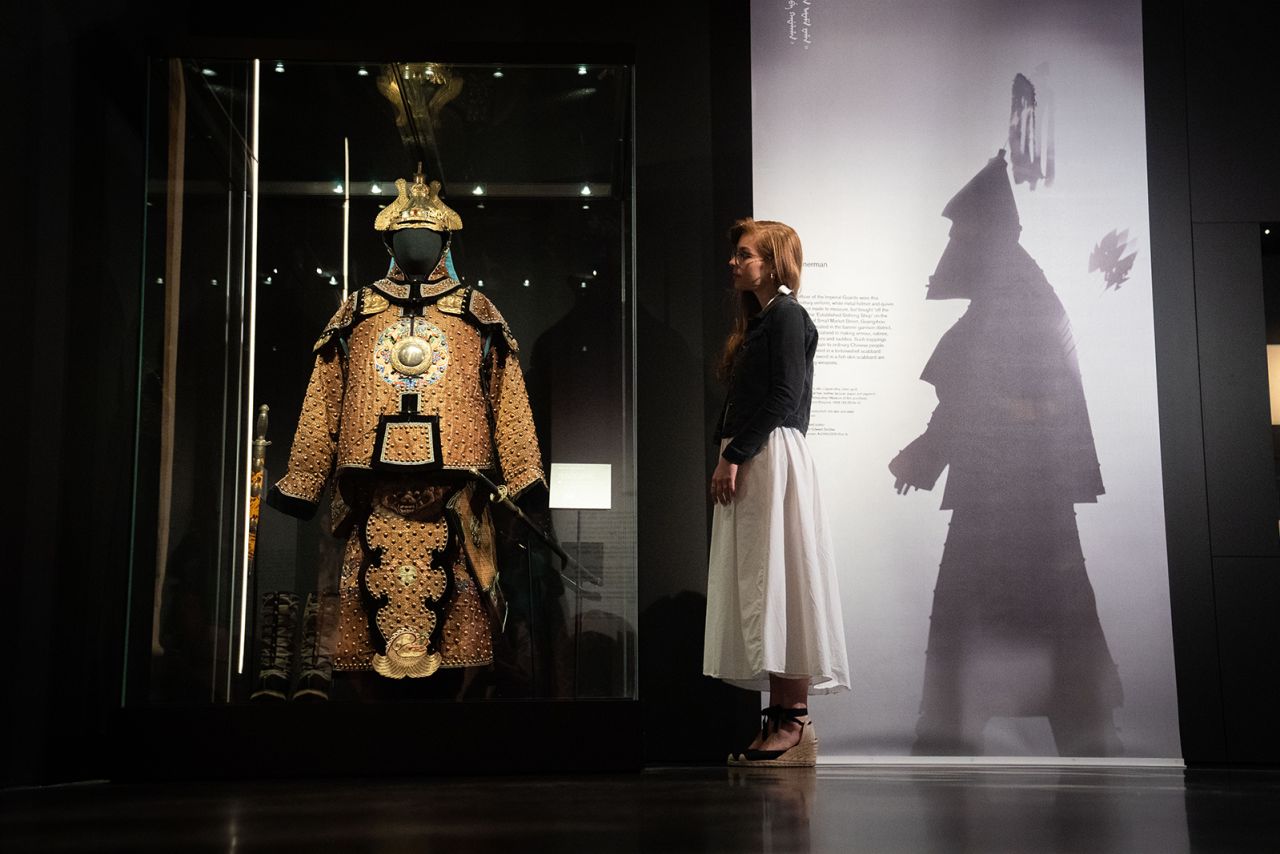CNN
—
When the British Museum launched its “China’s hidden century” exhibition last month, writer and translator Yilin Wang began getting confusing messages from her peers.
The show, which featured 19th century Chinese works including poems by feminist and revolutionary Qiu Jin, didn’t seem to include credits for translators, a friend told Wang. And yet, the Qiu Jin translations seemed to lift directly from Wang’s own work — was she involved in the exhibit?
No, Wang replied: She’d never been contacted by the museum, which used her work without permission, pay or acknowledgment.
A social media firestorm ensued, culminating in the British Museum issuing a statement Thursday that admitted the permissions and acknowledgment for Wang’s translations had been “inadvertently omitted.”
It was an “unintentional human error for which the Museum has apologized to Yilin Wang,” it said, adding that it had removed her translations from the exhibition, and offered payment for the duration they were up, as well as for the translations that remain in a printed catalog.
But these measures fall short and the apology rings hollow, Wang told CNN in a phone interview Friday.
She criticized the statement for sounding passive instead of taking proper accountability. And, she said, it neglects to address the larger questions this incident has raised about ethics in academia and what she describes as the frequent erasure of translators — especially women and people of color.
The online controversy emerged last week when Wang posted about the use of her translations on Twitter.
“Please note this is a copyright infringement … I think you owe me some money for printing and exhibiting my translations, British Museum,” she wrote in a thread, noting that her translations — which had previously been published on her website and in literary journals — were also featured in the museum’s online guide and printed catalog about the exhibit.
Her post has since circulated widely on Twitter, garnering nearly 53,000 likes and 15,000 retweets to date.
The British Museum has since reached out and in its statement Thursday, said it “takes copyright permissions seriously.”
“Across the range of our work, we make every effort to contact the owners of rights in text, images, print and digital media. This was a particularly complicated project and we recognize we made an inadvertent mistake and fell short of our usual standards,” it said.
It added that “China’s hidden century” had involved more than 400 people from 20 countries, and that those involved had “spent years, together with scholars worldwide,” putting it all together.

But to Wang, the scope of the project made her erasure sting all the more. “How exactly did this happen?” she said. “It was funded by a research grant that was over 700,000 (British) pounds. These researchers had (almost) four years to research, they must have gathered translations and created all these different formats. It’s been up for multiple weeks, and no one thought to be like, ‘Where are these translations from?’”
The exhibition was supported by a £719,327 ($914,847) research grant from the UK’s Arts and Humanities Research Council called “Cultural Creativity in Qing China 1796-1912.”
For Wang and peers in the translation and publishing world, this incident highlights the broader and longstanding problem of translators’ work being obscured or uncredited.
A social media campaign known as #NameTheTranslator has picked up steam in recent years, encouraging publishers, educators and reviewers to name translators alongside the original authors of literary works.
“Without translators, these kinds of works would not be accessible,” said Wang, adding that translated works only make up a small minority of books published in the US. “This is especially bad for women translators and women poets.”
The lack of credit also undermines the labor and expertise necessary for effective translation, many translators say. It’s not as simple as running a text through Google Translate — rather, good translation relies on skills, expertise and craft that can take years to train.
“When I’m translating, I am using my knowledge of poetry in English, I’m using my knowledge of classical Chinese literature, I’m doing background research on the poet and … on the time period that Qiu Jin was writing in,” she said. “I am also often going through 10 to 15 drafts of the same poem to find the right words, the right expression, the most eloquent way of translating idioms and allusions, the right way to capture the spirit and emotional power of the poetry rather than a word-by-word translation.”
This can be especially true for classical Chinese, which has a very different syntax and diction from English, she said. So when translations are used without credit, it’s this time, effort and knowledge being poached.
“I would urge the British Museum to come negotiate with me in good faith, that they’d be more apologetic,” Wang said, adding: “It’s really important to have discussions about copyright, about crediting translators’ labor, about making sure that this does not happen again and taking steps to correct it properly.
The British Museum did not respond immediately to CNN’s request for comment.